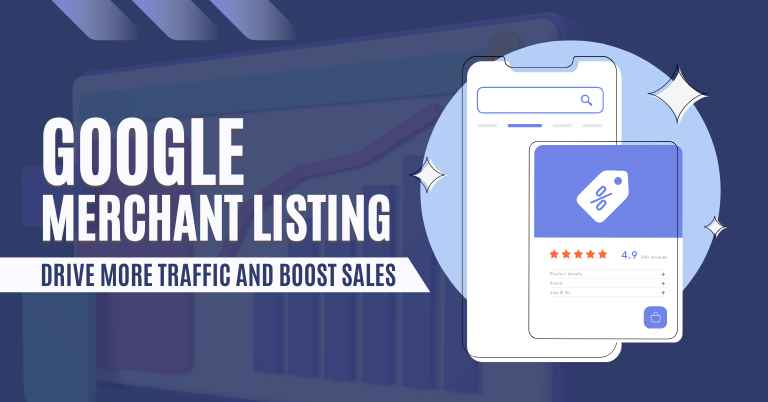Blogging helps SEO by improving website visibility and increasing organic traffic. Creating quality blog content relevant to target keywords can boost search engine rankings and attract more visitors to a website.
An effective blogging strategy plays a crucial role in enhancing SEO efforts. By consistently publishing informative, engaging, and keyword-optimized blog posts, businesses can establish their expertise, build backlinks, and improve their website’s overall search visibility. Blogging enables companies to provide valuable content that targets specific search queries, driving targeted organic traffic and increasing the chances of conversions.
Furthermore, fresh blog content signals to search engines that the website is regularly updated, which positively impacts SEO. Through strategic internal linking and promoting blog posts on social media channels, blogging can also generate referral traffic and create brand awareness. With its multifaceted benefits, blogging is an essential element of SEO success.
Let's See the Topic Overview
How Blogging Boosts Organic Traffic?
Engaging and informative blog content attracts more visitors:
- Blogging provides an excellent opportunity to create content that captivates and resonates with your target audience.
- High-quality blog posts can offer valuable information, insights, and solutions to your readers’ problems.
- By consistently publishing engaging blog content, you can attract more visitors to your website and keep them coming back for more.
Blogging increases the chances of ranking for long-tail keywords:
- Long-tail keywords are specific, niche phrases that users search for, and they often have less competition compared to broader keywords.
- Through regular and strategic blogging, you can optimize your content with long-tail keywords relevant to your industry or niche.
- By targeting these specific keywords, you increase the chances of ranking higher in search engine results and attracting relevant organic traffic.
Regular blog updates signal to search engines that your website is active:
- One of the key factors search engines consider when ranking websites is their activity level.
- By consistently updating your blog with fresh and relevant content, search engines will perceive your website as active and regularly maintained.
- This helps improve your overall SEO and increases the likelihood of your website appearing higher in search results.
Blog posts can generate backlinks from other websites, improving your website’s authority:
- When you publish valuable and informative blog posts, other websites in your industry or niche may find them useful and link back to them.
- Backlinks are crucial for SEO as they act as endorsements from other websites, indicating that your content is credible and valuable.
- By earning more backlinks, your website’s authority increases, thus improving your chances of ranking higher in search engine results.
Blogging can significantly boost organic traffic to your website. Engaging and informative blog content attracts more visitors while optimizing your blog posts with long-tail keywords increases your ranking potential. Regularly updating your blog signals to search engines that your website is active, and generating backlinks from other websites boosts your website’s authority.
Incorporating blogging into your SEO strategy is an effective way to drive organic traffic and improve your search engine visibility.
Blogging And Keyword Optimization
Blogging is not only a great way to engage your audience and share valuable information, but it also plays a crucial role in SEO. By consistently creating high-quality content, you can improve your website’s visibility and attract more organic traffic.
One of the key aspects of optimizing your blog for SEO is through effective keyword research and implementation. In this section, we will explore how to conduct keyword research for your blog topics, incorporating keywords naturally into your blog titles and content, optimizing meta tags and url structure for improved keyword relevance, and using internal links to enhance keyword optimization and user navigation.
Conducting Keyword Research For Your Blog Topics
Effective keyword research is the foundation of any successful SEO strategy. Here are some key points to consider when conducting keyword research for your blog topics:
- Start by identifying your target audience and understanding their needs and interests.
- Use keyword research tools like Google Keyword Planner, Semrush, or Moz Keyword Explorer to find relevant keywords with a substantial search volume.
- Prioritize long-tail keywords as they are more specific and have less competition.
- Consider the search intent behind the keywords to align your content with what users are looking for.
- Analyze your competitors’ content and identify keywords they are ranking for.
Incorporating Keywords Naturally Into Blog Titles And Content
Once you have identified the relevant keywords for your blog topics, it’s essential to incorporate them naturally into your blog titles and content. Here’s how you can do it effectively:
- Create compelling and keyword-rich blog titles that accurately describe your content.
- Incorporate primary keywords in the headline and ideally towards the beginning for better visibility.
- Sprinkle secondary keywords throughout the content to make it more relevant.
- Avoid keyword stuffing and focus on creating user-friendly, informative content.
- Write for your audience first, and then optimize for search engines.
Optimizing Meta Tags And Url Structure For Improved Keyword Relevance
Optimizing your blog’s meta tags and URL structure is crucial for improving keyword relevance. Consider the following points to optimize these elements:
- Craft unique and keyword-rich meta titles and descriptions for each blog post.
- Keep meta titles under 60 characters and meta descriptions under 160 characters.
- Include the primary keyword towards the beginning of the meta title and description.
- Ensure your blog post URLs are concise and contain relevant keywords.
- Use hyphens (-) to separate words in URLs for better readability.
Using Internal Links To Enhance Keyword Optimization And User Navigation
Internal linking is an effective strategy to enhance keyword optimization and improve user navigation on your blog. Follow these key points for effective internal linking:
- Link relevant keywords within your blog content to related posts or pages on your website.
- Use descriptive anchor text that accurately reflects the linked content.
- Link to both older and newer posts to maintain a healthy internal linking structure.
- Ensure that each internal link adds value and enhances the user’s experience.
- Avoid excessive internal linking that may appear spammy to search engines.
Remember, successful blogging requires a balance between creating valuable content for your audience and optimizing it for search engines. By conducting thorough keyword research, incorporating keywords naturally, optimizing meta tags and URLs, and using internal links strategically, you can significantly improve your blog’s SEO performance and drive organic traffic to your website.
So start blogging and make the most of SEO optimization for your content.
Creating Quality Blog Content
Creating quality blog content is essential for both engaging your target audience and improving your SEO. By understanding your audience’s interests and needs, crafting compelling headlines, and writing informative and well-structured blog posts, you can increase your chances of ranking higher in search engine results pages.
Additionally, incorporating multimedia elements can enhance the user experience and further boost your SEO efforts.
Understanding Your Target Audience’S Interests And Needs
To create quality blog content that resonates with your target audience, it’s crucial to understand their interests and needs. By doing a thorough research and gaining insights into your audience’s preferences, you can develop content that is relevant and valuable to them.
Here are some key points to consider:
- Conduct audience research to determine their demographics, interests, and pain points.
- Utilize analytics tools to gather data on your audience’s behavior and preferences.
- Engage with your audience through comments, social media, and surveys to gather feedback and understand their needs better.
- Tailor your content to address your audience’s specific challenges and provide solutions.
- Keep up with the latest trends and topics within your niche to keep your content fresh and relevant.
Crafting Compelling Headlines To Attract Readers And Search Engines
Your blog post’s headline plays a crucial role in attracting both readers and search engines. A compelling headline can capture readers’ attention and entice them to click through to your blog post. Here are some key points to remember when crafting headlines:
- Use powerful words and emotional triggers to create impact and evoke curiosity.
- Include relevant keywords in your headlines to improve search engine visibility.
- Make your headline specific and clear to give readers a preview of what the blog post offers.
- Keep your headline concise but engaging, using action verbs and strong language.
- Experiment with different headline formats, such as listicles, how-tos, questions, or provocative statements, to find what works best for your audience.
Writing Informative, Engaging, And Well-Structured Blog Posts
The quality of your blog content greatly impacts its effectiveness in engaging readers and improving SEO. Here are some key points to remember when writing your blog posts:
- Provide valuable and insightful information to your readers.
- Break your content into sections using subheadings to improve readability and structure.
- Use short paragraphs and bullet points to make your content easier to skim.
- Incorporate visual elements, such as images, videos, or infographics, to enhance the user experience.
- Link to credible sources to provide additional information and support your claims.
- Write in a conversational tone that is relatable to your target audience.
- Optimize your on-page elements, such as meta tags and headers, to improve SEO performance.
Remember, creating quality blog content goes beyond just writing for search engines. It’s essential to prioritize the needs and interests of your target audience to ensure your content resonates with and engages them. By consistently producing informative, engaging, and well-structured blog posts, you can drive traffic to your website, establish authority in your niche, and improve your overall SEO performance.
Blogging Frequency And Consistency
Determining The Ideal Frequency For Publishing Blog Posts
Consistently publishing blog posts is essential for optimizing your website’s SEO efforts. However, determining the ideal frequency can be a challenge. Let’s explore some key points to consider when setting your blogging schedule:
- Audience demand: Understanding your target audience’s preferences and engagement patterns is crucial. Pay attention to factors such as their online behavior, peak activity times, and the type of content they find most valuable.
- Content quality over quantity: While publishing frequently is important, quality should never be compromised. Focus on delivering well-researched, informative, and engaging content that resonates with your audience.
- Consistency builds trust and authority: Maintaining a regular blogging schedule helps establish trust and authority within your niche. It shows that your website is active, reliable, and committed to providing valuable information to users.
- Strategies for maintaining a regular schedule: Here are a few tactics to help you stick to a consistent blogging routine:
- Create an editorial calendar: Plan and organize your content in advance. This will help you stay on track and ensure a steady stream of blog posts.
- Batch content creation: Set aside dedicated time to brainstorm, research, and write multiple blog posts in one go. This allows you to work efficiently and maintain a consistent publishing schedule.
- Delegate or outsource: If possible, involve team members or consider outsourcing content creation to ensure a regular flow of fresh content.
- Reaping the long-term benefits: Consistent blogging efforts yield various long-term benefits for SEO:
- Improved organic traffic: Posting regularly keeps your website in the spotlight, increasing the likelihood of attracting more organic traffic from search engine results pages.
- Enhanced search engine visibility: Search engines prioritize websites that publish fresh and relevant content regularly. Consistent blogging improves your chances of ranking higher in search results.
- Increased social media reach: Regularly sharing valuable blog posts on social media platforms helps expand your reach and engage with your audience, driving more traffic to your website.
By determining the ideal frequency for publishing blog posts, consistently delivering high-quality content, and adhering to a regular blogging schedule, you’ll strengthen your SEO efforts and establish your website as a reliable source of information in your industry. Embrace the power of blogging and unlock the long-term benefits it brings.
Promoting Your Blog For SEO Success
Blogging has become an essential tool for website owners and businesses looking to boost their online presence. But does blogging really help with SEO? The answer is a resounding yes! In this section, we will explore how you can promote your blog for SEO success.
Let’s dive in!
Leveraging Social Media Platforms To Increase Blog Visibility
Social media platforms have revolutionized the way we connect and share information. They are not just for personal use anymore; businesses and bloggers can take advantage of these platforms to boost their online visibility.
Here’s how you can leverage social media for promoting your blog:
- Create social media profiles: Set up accounts on popular social media platforms such as Facebook, Twitter, Instagram, and LinkedIn. Fill out your profile information, add links to your blog posts, and make sure to update your profiles regularly.
- Share your blog posts: After publishing a new blog post, share it across your social media channels. Craft engaging captions and use relevant hashtags to increase the reach of your posts. Encourage your followers to share the content with their networks, expanding your blog’s visibility.
- Engage with your audience: Social media is all about building relationships. Respond to comments, initiate conversations, and thank your followers for sharing your content. By actively engaging with your audience, you can create a community of loyal readers who will keep coming back to your blog.
Encouraging Reader Engagement Through Comments And Social Sharing
Engaging your readers is crucial for SEO success. Comments and social sharing not only increase user interaction but also signal to search engines that your content is valuable and relevant. Here’s how you can encourage reader engagement:
- Enable comments on your blog: Make it easy for readers to leave comments on your blog posts. Respond to their comments and encourage further discussion. This not only boosts reader engagement but also adds fresh content to your blog, which search engines love.
- Add social sharing buttons: Include social sharing buttons at the end of each blog post to make it effortless for readers to share your content on their social media profiles. This helps amplify your blog’s reach and attract new visitors.
Building Relationships With Other Bloggers To Expand Your Reach
Blogging is not just a solo endeavor; it’s a community. Building relationships with other bloggers in your niche can significantly expand your reach and bring more traffic to your blog.
Here’s how you can foster these connections:
- Comment on other blogs: Take the time to read and leave thoughtful comments on other blogs in your niche. This demonstrates your engagement and can pique the interest of both the blogger and their readers.
- Collaborate with other bloggers: Look for opportunities to collaborate on guest posts, interviews, or joint projects with other bloggers. This allows you to tap into their audience and gain exposure to a whole new set of potential readers.
- Attend industry events and conferences: Networking in person is just as important as online interactions. Attend industry events and conferences related to your blog’s niche to meet other bloggers, share ideas, and form valuable connections.
Guest Blogging Opportunities To Gain Exposure And Backlinks
Guest blogging involves writing and publishing content on someone else’s blog. It is an excellent way to gain exposure, build backlinks, and establish yourself as an authority in your field.
Here’s how you can take advantage of guest blogging opportunities:
- Identify relevant blogs: Research and identify high-quality blogs in your niche that accept guest posts. Look for blogs with good domain authority and engaged readership.
- Craft compelling pitches: When reaching out to bloggers, make sure you create personalized and compelling pitches that showcase your expertise and explain how your content aligns with their audience. Highlight any past successes or published work to strengthen your pitch.
- Write high-quality content: When writing guest posts, ensure they are well-researched, informative, and offer unique insights. Make sure to include a link back to your own blog in the author bio or within the content itself.
By leveraging social media, encouraging reader engagement, building relationships, and exploring guest blogging opportunities, you can promote your blog for SEO success. Implement these strategies consistently, and watch your blog’s visibility and organic traffic soar.
Measuring And Analyzing Blogging Efforts
Blogging can have a significant impact on your SEO strategy, but it’s important to measure and analyze your blogging efforts to ensure you’re maximizing their effectiveness. By setting up Google Analytics and monitoring key metrics, you can gain valuable insights and make informed decisions to improve your blog’s performance.
Here’s how:
Setting Up Google Analytics To Track Blog Performance
- Sign up for a Google Analytics account and add the tracking code to your blog.
- Ensure that the tracking code is installed correctly to accurately capture data.
- Set up goals and conversions to track specific actions on your blog, such as newsletter sign-ups or product purchases.
Monitoring Key Metrics Such As Organic Traffic, Bounce Rate, And Time On Site
- Track your organic traffic to measure the number of visitors coming to your blog from search engines. This will help you understand the impact of your SEO efforts.
- Pay attention to your bounce rate, which indicates the percentage of visitors who leave your blog after viewing only one page. A high bounce rate may suggest the need for improvements in content quality or site navigation.
- Analyze the average time visitors spend on your blog. This metric can indicate the engagement level of your content and whether visitors find it valuable.
Using Data To Identify Successful Blog Topics And Optimize Future Content
- Analyze the performance of your blog posts to identify topics that resonate with your audience. Look at metrics like page views, social shares, and comments.
- Pay attention to the keywords that drive organic traffic to your blog. Identify high-performing keywords and incorporate them into future content to improve SEO.
- Use data to understand which types of content perform best, such as tutorials, listicles, or case studies. Tailor your future blog posts to meet your audience’s preferences.
Adjusting Your SEO Strategy Based On Blog Analytics Insights
- Regularly review your blog analytics to identify trends and patterns in your data.
- Use the insights gained to refine your SEO strategy. For example, if certain blog topics consistently perform well, focus more on creating related content.
- Experiment with different content formats, headlines, and keywords based on your data analysis. Continuously optimize your blog to improve its visibility and drive organic traffic.
Measuring and analyzing your blogging efforts is crucial for SEO success. By setting up Google Analytics, tracking key metrics, and using data to inform your content strategy, you can optimize your blog’s performance and drive organic traffic to your site.
Frequently Asked Questions
Does Blogging Improve SEO?
Yes, blogging can significantly improve SEO. By regularly posting high-quality, keyword-rich content, you can increase your website’s visibility in search engine results pages (SERPs). Blogging also helps to drive organic traffic, build backlinks, and establish your website as an authoritative source of information.
How Does Blogging Help With SEO?
Blogging helps with SEO by providing fresh, relevant content on your website. Search engines love fresh content, and regularly updating your blog signals to them that your website is active and valuable to users. Additionally, you can optimize your blog posts with keywords, internal links, and meta tags to improve your website’s visibility in SERPs.
Is Blogging Important For SEO?
Yes, blogging is essential for SEO. It allows you to target specific keywords, create valuable content that attracts backlinks, and engage with your audience. Blogging also helps you establish your brand as an industry expert and improves your website’s visibility in search engine results, ultimately driving more organic traffic.
How Often Should I Blog For SEO?
To see the best results in terms of SEO, it is recommended to blog at least once a week. Consistency is key, so creating a content schedule and sticking to it will help search engines recognize your website as a reliable source of information.
However, if you can blog more frequently without compromising quality, it can further enhance your SEO efforts.
What Should I Blog About For SEO?
When it comes to blogging for SEO, it’s important to focus on topics that are relevant to your target audience and industry. Look for trending topics, frequently asked questions and areas where you can provide unique insights. Additionally, consider conducting keyword research to identify high-volume and low-competition phrases that you can incorporate into your blog posts.
Conclusion
Blogging proves to be a powerful tool in enhancing SEO efforts. By regularly creating high-quality and relevant content, websites can attract more organic traffic and improve their search engine rankings. A well-structured blog post with strategic keyword placement, proper headings, and internal links not only provides valuable information to readers but also signals search engines about the relevance and authority of the website.
Blogs also serve as a platform for building relationships and engaging with the audience, which can lead to increased brand visibility and credibility. Additionally, blogging can positively impact social media and email marketing efforts, resulting in a holistic digital marketing strategy.
So, whether you are a small business owner or a content creator, incorporating blogging as part of your SEO strategy is essential to drive traffic, increase visibility, and boost your online presence.













Thanks on your marvelous posting! I seriously enjoyed reading it, you may be a great author. I will make sure to bookmark your blog and definitely will come back from now on. I want to encourage one to continue your great posts, have a nice holiday weekend!